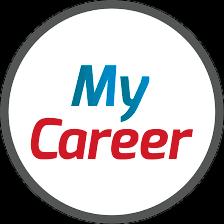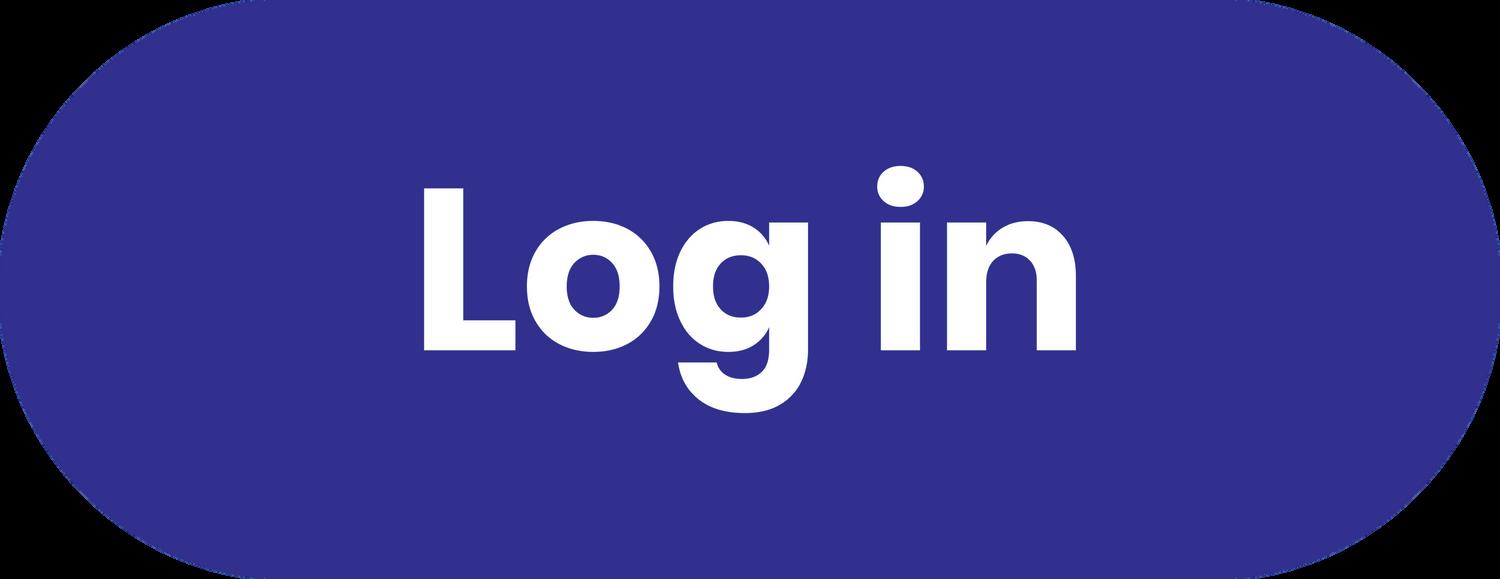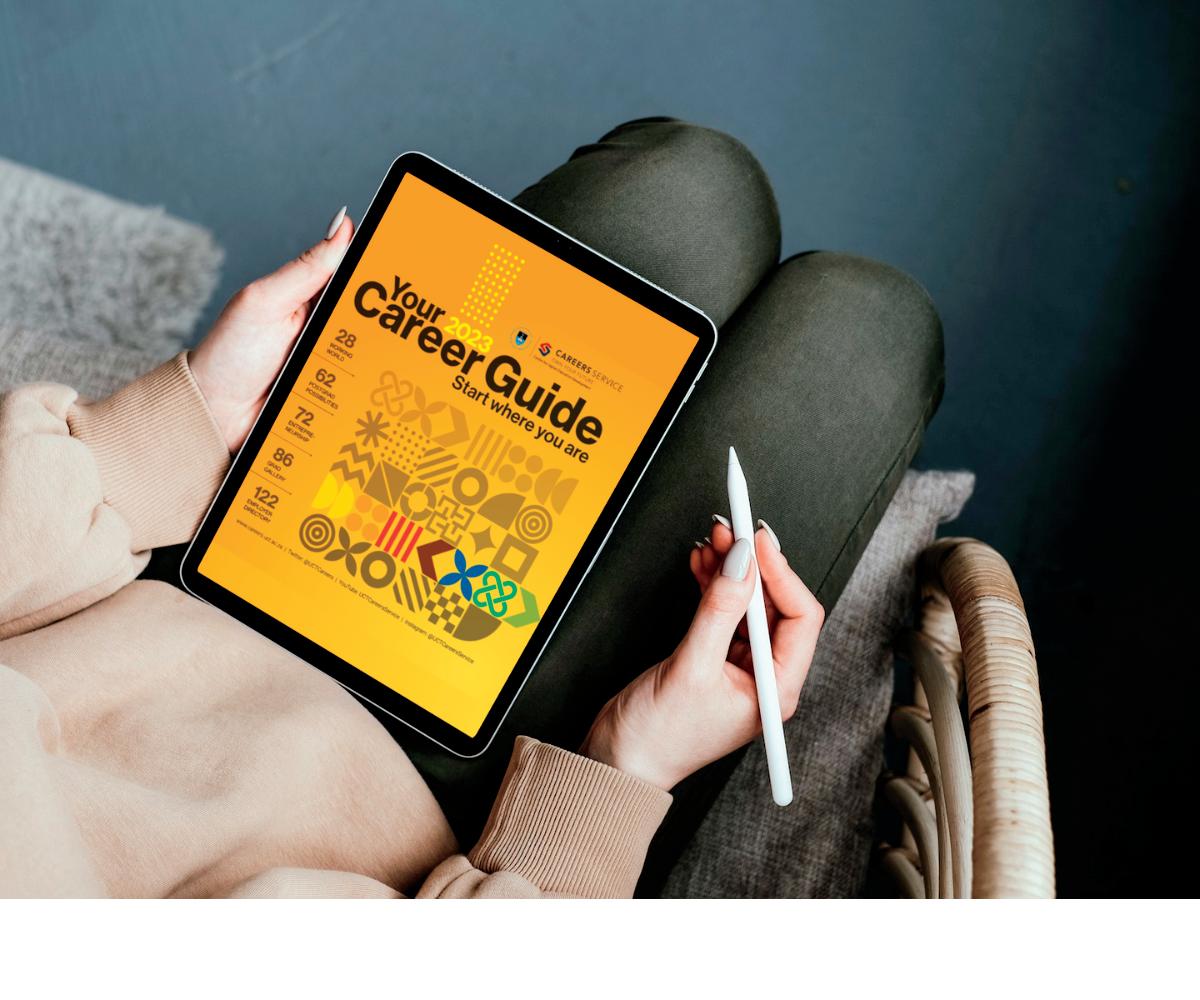MakingJob Applications
WritegreatCVsandcoverletters,prepareforjobinterviews, anddiscoverhowtomakethemostofacareerexpo



WritegreatCVsandcoverletters,prepareforjobinterviews, anddiscoverhowtomakethemostofacareerexpo


UCT’s career portal designed to help you access our services

Opportunities
Bursaries, jobs, internships
Employer networking events
Career events and webinars

Entrepreneurship competitions
Information
Job search resources

Sk ll d l l
CareerAdvice consultations
Job search assistance
CV / bursary application reviews
Book face-to-face or virtual


A CV is a marketing tool, which is intended to put across your best points. You might have a lot to offer, but if your CV is poor, you may not get past the first stage in the selection process. It is worth spending time reflecting on yourself, understanding your value proposition, and then writing, editing, and updating your CV until you are confident that it presents you in a professional and comprehensive manner
Here are some tips to help you develop an Impactful CV that you will be proud of:
Identify what you will be using your CV for
If your CV is for a particular job opportunity or bursary, make sure that you have the requirements or the job specifications. This will help you understand what to put in your CV. Bursary or scholarships CVs are different from job application CVs.
Choose your headings wisely
Choose headings that fit your experience Avoid using templates which constrains you from adding headings, or those that are commonly used Headings should be eye-catching and be fitting to what you have done and achieved Refer to CV example provided
What skills are required?
These are often outlined in the job description Identify examples of where you have used skills drawing from all your activities and experiences (i e , studying, course work, part time work, cultural or sporting activities, community involvement or voluntary work).
Use evidence to strengthen your skills section
Many students claim to have skills but give no examples that act as evidence of what they have done Evidence is powerful and shows that you have thought about how you can transfer a skill from one area to what you are applying to See our examples in this handout
Avoid repetition!
DO NOT repeat information Some of the same information could go under different headings You need to decide where to put information so that your CV is not repetitive
Check spelling and grammar
Your CV needs to be error free. Applications can be rejected if they have spelling errors and typos. Also make sure that your formatting, style, spacing and headings are consistent.
Always send your CV with a cover letter and any supporting documents that are requested. Your CV is part of an application package that generally includes:
Academic records
REMEMBER: a cover letter enables you to write in prose, which you should not do in a CV.
Tipsonlayoutandformatting:
Put all activities in each section in reverse chronological order (start with most recent information)
Use the same font throughout and consistent font sizes for headings and text
Font size for body text should be between 10 – 12, use Ariel or Calibri (body)
Be careful of templates - they may not serve your purpose (use plain and simple ones if needed)
Avoid using CAPS other than in headings
CVs are typically two pages, but employers may request otherwise, so always follow instructions
Academic CVs can be longer, and resumes are one page
Use your space wisely, but don’t overcrowd the information (use line spacing between 1 and 15 pts)
Adjust your margins if you are trying to keep to two pages and are one or two lines over
Do not include a photograph, unless requested by the employer to include it
Cell:0823456789|Email:careersservice@uctacza|LinkedIn:@johndoe|Mowbray CapeTown
Profile
Graduate with a bachelor of arts in Media Studies and Political Sciences,, currently completing Honours in Political Sciences at the University of Cape Town Interested in social media vacation work experience in publishing and marketing Avid blogger (studentponderingsblogspotcom)andwinnerofAlanPatonShortStoryAwardin2022 Proficientcommunicator,writer,anddebater inEnglish,Afrikaans,isiZuluandaconversationalistinGermanandSpanish
2022-Current:BachelorofArtsHonoursinPoliticalSciences,UniversityofCapeTown(UCT)
2019-2021:BachelorofArtsinMediaStudiesandPoliticalSciences UCT
Deans'MeritAward(2020)
Achieved85%passingaverage
2017-NationalSeniorCertificate,Matric,LesongaHighSchool,CapeTown
Achieved4distinctionsinMathematics English BiologyandGeography
SRCChairpersonandClassCaptain
2017WesternCapeRegionalDebatefinalist
December2020-February2022:Intern,Media24,CapeTown
Assistedwithlogistics,editing,administrationandwrotearticle"HungryStudents"(Drum,March2011)
January2021-March2021:OrientationLeader,FacultyofScience,UCT,CapeTown
Facilitated3orientationsessionsandpresentedatalkto350firstyearstudents
ProvidedguidanceandclaritytoscienceFirstYearsstudentsonhowtheuniversityisstructuredandwheretogetservices
June2016-December2017:Waitress(part-time),Brian'sBurgerPlace,CapeTown
Providedcustomerservicestoallabout40-50customersdaily,gainedEmployeeoftheMonthforfivemonthsinarow Designedandproposedmenuchangewhichincreasedcustomersatisfactionanddining
Skills
ITandComputerSkills: proficient computer user with key skills in Microsft Office Suite (Excel Word Powerpoint) Python,Adobepackage,Canvaandtroubleshooting
Communication:Developed public speaking skills and presenting through debate participation and further enhanced communicationskillsasawaitress CompletedSpanishandGermancourses
Marketing and Design: Designed a restaurant menu using Canva and shared the menu on social media to drive engagement gained100+customersperday
Referees
ProfessorPercyDavis,Head:BotanyDepartment UCT:percydavis@uctacza MrVincentMabona,Manager:SWATMarketing:vincent@swatcoza
AdditionalInformation
Achievements/rolesofresponsibility/leadership/communitywork/culturalactivities,sport
2021:HumanitiesExclusive UCT(6weekdevelopmentprogramme)
2015-2018:1stTeambasketball,RondeboschCommunityTeam
2017:MemberofStudents RepresentativeCouncil,LesongaHighSchool
MembershipofProfessionalAssociations
2020:MemberofGoldenKeyInternationalHonourSociety UCT
PublicationsandConferences
2021: Africom Conference, Cape Town: co-presented paper on "Do Student Voices Make A Difference: Exploring OutcomesofStudentActivismatUniversityofCapeTown
Use your preferred name. Do not include all your names. Include one professional email, preferably your Gmail, Apple, Hotmail or Webmail
LinkedIn profile link must be hyperlinked Make sure your account is updated Include ONLY if you have a profle.
This is optional, however, if you choose to include a profile, be specific and concise about your unique selling points. It should be no longer that 4 points. Concentrate on your education, passions, interests and skills
Online Courses or additional training should be placed under a different heading (e.g., Additional training/courses
January 2022 - Jun 2022: Python fundamentals, Coursera
Include any work experience (part-time, vac work, volunteer, internships etc.). Use actionable words to describe your impact and involvement in the organisation or company. Click here for actionable words
Include at least 5 -7 skills ranging from your transferrable skills, interpersonal skills, technical/IT skills, qualification, or industry skills (i.e., As a BA media student, I gained digital marketing skills, research, editing and communications. Additionally, add skills to close the gap from different job postings you are targeting.
HELP TO IDENTIFY YOUR SKILLS: https://careers.uct.ac.za/students-consideringyour-career/identifying-skills
Only include email addresses and exclude cellphone contacts
Select a HEADING which is relevant to you No need to include all of them
Publications and conference section can be included if you are compiling an academic CV or a postgraduate scholarship
A cover letter adds context to your CV It is your opportunity to demonstrate your knowledge and interest in the employer or position, to highlight what you can offer and why you are a good fit for the role
Whattoincludeinacoverletterforanadvertisedrole?
Acoverlettermustdothefollowing:
State the position applied for (if this is not a ‘cold call’ application)
Introduce you to an employer as a professional, confident, and enthusiastic candidate
Articulate your reasons for applying
Explain why you want to work for that employer
Showcase your strengths and relevant experience
Highlight why you are suitable for the job
Address any gaps or weaknesses in your CV
The employers look for evidence that you are a good match for the job Your task is to convince them to invite you for an interview They want to see that you can communicate clearly, that you are knowledgeable about the organisation and role, and that you have the right skills and character for the job.
It is best practice to name a person and their position at the organisation, for example: “Dear Dr Mbabane, Head of Department” If you are responding to an advertisement there may be a contact provided If you can’t find the appropriate person through research, then you may use more generic titles such as “Dear HR Director” or “Hiring Manager”; best to avoid using gender-based terms such as Sir/Madam or the generic “To whom it may concern ” .
Unlessotherwisestated, includeacoverletterwith everyCVyousend. Thoroughlydoresearchto customiseyourcoverletter fortheorganisationand positionyouareapplyingfor
Ifyouareemailingyour application,attachyour letter(andCV)asapdf attachment,withabrief, professionalemail outliningwhatyouare applyingforand attaching
Your letter should be one A4 page written using the standard business letter format (see last page for example template) Do not over fill the page, as white space helps with readability and makes the presentation more attractive It’s best to electronically type the letter and convert the document into PDF format to retain your layout This is particularly important with emailing the cover letter, as words shift when viewed on a different system or version of software
Be concise, understand that people are busy
Use clear, simple language appropriate to the industry
Customise each letter explaining what you might bring to the organisation
Use descriptions of actual events, qualifications, and skills rather than providing opinions
Focus on your relevant experiences and pull attention to relevant parts of your CV
Explain any weak points in your CV, such as gaps in work history
You can reduce the font and margin-size to fit more on the page but consider the impact as white space aids absorption of information
Spell check, grammar check and have someone else proofread the final document
Don’t use a font size below 11 pt
Don’t use overly formal or informal writing styles or fonts
Don’t use hyphenated words at the end of a sentence
Never suggest the job doesn’t align with your ambitions
Never attempt to use flattery
Don’t start every paragraph with “I”
Don’t repeat yourself, this includes simply repeating the information in your CV
Never lie or exaggerate your experience
Don’t leave the subject line blank in the email
Don’t use abbreviations, slang, colours, emoticons in your letter
Don’t add quotes to your email signature
Don’t forget to attach the CV and provide your contact details
A speculative cover letter is used for when a role is not advertised at an organisation
Do research so that you can explain the role that you are interested in at that particular company. This demonstrates that you are proactive and dedicated.
Each letter will be unique to you and a particular employer, but we examine what makes a good or bad cover letter by looking at specific examples:
“I am interested in a career in journalism because I am passionate about communication and people’s right to the truth Current issues awaken my curiosity and often stimulate further research They make me want to connect with the people involved and to find out more I gained valuable research experience from my internship at The Daily News ” This applicant is conveying their motivation and demonstrating that they have relevant experience
“As an Economics graduate, I have excellent data management skills that will transfer well into project management I am able to provide solid forecasting and during my internship, could quickly highlight project issues before they have an impact” This applicant provides evidence that their existing skills align with the demands of the job.
“Dear HR manager, I am very interested in being part of Scholarfund Your focus on assisting underprivileged students to access education is a cause very close to my heart, having been a scholarship recipient throughout my secondary and tertiary education”
The applicant has failed to find a person to address the letter to but targets it at the most relevant post
They name the company They communicate alignment between their interests and the company ’ s aims.
“I am interested in a career in journalism because I have always enjoyed watching the news and I am very impressed by the success of Aljazeera. I was very moved by the coverage of the Egyptian revolution of 2011 ”
This applicant comes across a consumer rather than someone who contributes Their emotional, yet passive response to a world event is not relevant
“I” is overused, a better version would be: “A career in journalism has always interested me because ”
“As an Economics graduate, I am fascinated by trends in the labour market and hope to move into research I am excelent at interpreting data and I believe working for you as a project manager will be a good starting point for my career ”
This applicant admits that their career plans do not align with position advertised
The use of “excellent” is an opinion, and they failed to use the spell checker to correct it
“To whom it may concern My name is Rose Theron This letter serves to introduce myself and inform you of my interest in becoming a part of your company My CV will furnish you with information concerning my employment history ” This comes across as a generic application that could be sent out 100 times or more. There is no need to state your name upfront
They fail to name the company
The language is overly formal with “ serves to introduce” and “furnish you ”
Your address (max 3-4 lines)
Phone number/email
Date
Company representative name Company representative title/designation Company address
Dear [Company Representative name/title/designation or “HR manager”], Subjectline1 [State purpose of letter] Re: Application for advertised in (include reference number if provided)
Paragraph1
State your current location and occupation (e g , I am a final-year Humanities student at the University of Cape Town )
List any documents that are attached in support of your application (e.g., CV, transcripts, testimonials)
Paragraph2
State your motivation for applying to this organisation (ensure you have done the research to be able to persuade that you are a good fit)
Demonstrate your knowledge about the organisation and how your ambitions align with theirs
Paragraph3
Showcase your skills, qualifications and experience to demonstrate that you meet the basic requirements Describe how your career interests, aspirations and personal attributes have led to your interest in and suitability for the position
Refer to specific examples in your CV to highlight your accomplishments and what you can offer Demonstrate how your attributes/accomplishments can benefit the organisation
Paragraph4(optional)
Outline any unique circumstances you may wish to inform the employer of (e g , special needs related to illness; gap in a CV; prolonged time to complete degree) Disclosure is entirely your choice as, regardless of your circumstances, you have the ability to fulfill the role
You may want to refer to your availability
Closingparagraph
State your appreciation for the consideration given to your application and your interest in receiving a positive response
If you plan to follow up on the application with a phone call/email, then state that specifically (and ensure that you do follow up)
Signoff with “Yours sincerely” if you have addressed the person by name, or “Yours faithfully” if not, and then your name underneath
An interview is a meeting between an employer and a job seeker that takes place after applying for a job and being short-listed for the position. The interview is an opportunity for the employer to evaluate you and for you to assess if the job and the company is right for you
Employers use different types of interview formats, depending on the company and type of jobs they are seeking to fill For larger organisations you may already have undertaken a type of assessment test before you are invited to an interview. For others, you may face several types of interview formats throughout the selection process.
Themostcommonformatsofinterviewsare:
face-to-facemeetings with one or more interviewers (a panel) is still the most commonly used format They typically last between 45- and 60 - minutes and the questions may be competency- or strength-based telephonicinterviews with one caller used early in the application process to filter large number of applicants They typically last between 15- and 30- minutes with questions related to confirming your interest in the role, knowledge about the company and your credentials If you are successful, you will be invited to a face-to-face or video interview videocalls which last between 30- and 45-minutes using zoom, teams or a similar app are increasingly popular among large employers particularly for graduate programmes. Video interviews can be live or pre-recorded with the latter (in which case you will be required to answer a set of questions or respond to a number of statements) becoming more popular assessmentcentres which you will attend with several other candidates, enable employers to compare the performance of lots of applicants at the same time You will participate in presentations, team exercises, psychometric tests and sometimes complete case studies to demonstrate your knowledge and skills. Assessment centres lasts the entire day and may be held online as well as face-to-face
The key to a successful interview is preparation as this helps you to feel confident, answer any questions concisely and make a great impression Don’t leave this until the last minute.
You might be required to attend more than one interview: a telephonic screening interview to secure your place in the more in-depth second face-to-face interview followed by an assessment centre
An invitation to an interview may come a few weeks after applying for the job, so ensure you keep a copy of the relevant advertisement, the job requirements, and the job description if it was included in the advertisement
Request and note the following details:
Date and time of the interview
Exact location and directions Find out how long it will take to get there if you are taking public transport or an uber; find out where to park if you are taking your own transport
If you need to prepare anything specific or bring anything to the interview
The name of the caller/emailer, the names of the interviewer(s)
How long the interview will take
Whattoresearchbeforetheinterview
An essential part of preparing for the interview is to conduct research on the employer, the job you ’ re applying for, the interview panel and the questions you can expect.
Employer – ensure you understand the business of the employer – the sector, industry, the context within which it operates, its values and culture, challenges and competitors it faces. Check its website and LinkedIn pages.
Job – be clear you understand what is expected from the job, the knowledge and skills required and why you are a good fit for it. Can you explain why you want the job, why the company should choose you over other candidates? Read the job description again and again
Interview panel – try to find our who will be interviewing you. Use LinkedIn and the “About Us” section of the company website to find out more about the interview panel’s interest and experience. This may help you establish a positive rapport with them.
Questions you can expect – this is available in our handout: Handling interview questions Also consider questions you might want to ask the panel and prepare about five questions about things not covered in the advertisement, website or the interview.
Do a mock interview – practice at least once before the actual interview. Book an appointment with one of the Career Service Consultants to do so; record yourself answering common questions and review them
First impressions count - be punctual
Show enthusiasm for the job and be positive about yourself
Watch your body language – maintain eye contact (if it a video interview –remember to look into the camera), give a firm handshake, don’t slouch –
sit naturally upright, remember to smile frequently
Dress professionally (as if you already have the job)
Answer all questions clearly, audibly and concisely; pause before answering a question to give yourself time to think; don’t speak too quickly
For online telephonic interviews, plan and test the following well before the interview:
Ensure you have access to a quiet space or book a virtual interview room with Career Service
Make sure you have enough batterylife on the device you are using Test call to check the connectivity and stability of the phone or internetline
Test your camera and make sure the lightingis good (e.g. no bright backlight) For video calls, dress smartly and check that the background is clean (e.g. they can’t see your unmade bed or a pile of dishes!)
Frame the camera to include your upper body so you appear natural and there isn’t a focus on the top part of your head, which can happen when using a webcam
If using zoom or teams or a similar application, make sure that your username and profile picture are appropriate and professional (e g NOT @cheekySquirrel99 or @soccerHooligan32)
If you are presenting something in the interview, you will need to cover logistical items as well as some technological ones Check that you do the following:
Have multiple copies of digital files (e g on flash drive, in the cloud, emailed to the interviewer, and/or on your computer if you are taking one).
Test the format on different devices or file types, as layouts may alter during conversions
Bring any equipment you might need, including power cables and adaptors - ask if you are unsure of what is available
Limit animations and embedded clips that could malfunction
Within 24 hours of the interview:
Send a short email to thank the employer for the opportunity to interview for the position, mention something you have learned or enjoyed about it. Send any additional information you were asked for or offered to send during the interview
After the interview, ask when you will be informed of the outcome and thank them for the opportunity
You are invited to a second interview: you need to start preparing You get a job offer: This is wonderful news! The offer normally outlines the conditions of your employment (e.g. the salary they are offering, the amount of leave, the length of the contract (if not a permanent position) and working hours). Make sure you know and understand all the conditions before you sign; you may wish to negotiate the terms before
You get a rejection: Accept the decision graciously (keeping up your professional impression) and ask for feedback on why you did not get the position This will help you
to prepare better for the next interview or identify skills that you need to acquire You don’t hear from them again - this is frustrating! During the interview, you should have asked for next steps and a timeframe of when you can expect to hear back. If that period passes with no news, it is acceptable to contact the organisation asking for feedback.
Employers need to decide if you are the best person for the job and a good fit for the organisation How you respond to the interview questions is a key factor in their decision making Considering and preparing for some of the questions you expect to be asked so that you convey the relevant information, will boost your confidence and performance during the interview
Andwhileyoucanneverbesureexactlywhatyouwillbeasked,here aresomecommonquestionsyoushouldbepreparedfor:
This is a common and important opening question as it enables you to create a great first impression. Generally, start with an overview of your highest qualification, achievements you are proud of, any work experience you may have had and the skills you developed. Try to articulate what you can offer and why you are a good candidate To sound confident, practise this out loud, but don’t sound too rehearsed in your response
Why did you apply for this position? Why are you a good candidate for this role?
You need to demonstrate that you have researched the role, and what is required to perform successfully in it Study the job description, or research what the position usually involves Be ready to provide examples for each of the competencies and skills required Be honest but optimistic if you don’t have some of the skills required Employers prefer someone who is honest about their abilities and is keen to learn. Also mention the aspect of the job advertisement that attracted you to it, what you would enjoy about the job.
What are your strengths?
Identify four to five strengths that align with those skills the employer is seeking in the advertisement Whichever strengths you choose to share, you must be able to provide evidence of having demonstrated them in the experiences you have had or where acquired them
What are your weaknesses?
You can frame your weaknesses more positively as areas of development Rather think about one to two skills you would like to improve and mention what you have done to do so For example, you might want to improve public speaking deciding to join Toastmasters to gain confidence in doing so.
How do you prioritise your work?
Employers are interested in how you plan and organise yourself and your work; how meet deadlines and competing priorities Think about how you have managed multiple tasks and delivered them on time Provide insight into the ways in which you keep track of what you need to deliver and produce
What has been your greatest achievement?
Think about achievements whilst at university, awards you received, accomplishments you are proud of in any of your experiences (sport, vacation work, voluntary work, extracurricular activities), overcoming significant challenges. Try and link your achievements to what the employer might value.
What has been the most difficult situation you faced?
This question is designed to assess how you cope under pressure and seeks to understand how you overcame the difficult situations, how you dealt with unexpected situations, tight deadlines or difficult people
Interviewerscommonlyuse‘behavioural’questionssothattheycangetasenseofhow youhandledifferentsituations Someexamplesare:
Describeatimewhenyoufacedconflictinaprofessionalsettingandhowyou resolvedit
Tellusaboutanexperiencewhereyouhavehadtotaketheleadinateam
Youcanrefertothingsyouhavedoneinwork/study/extra-curricula/personalcontexts
Whenanswering,usetheacronymSTARtostructureyouranswer:
Situation–where,when,andwithwhom
Task–thetaskorprojectthatyouwereworkingon Action–theactionsyouperformedinresponsetoortocompletethetask
Result–theoutcomeyouachieved,whatyoulearned,whatyouwoulddodifferently
Research the company website and social media platforms to know more about the company, the people you will meet and the industry. This research helps to identify questions you may add to your own list of questions to ask and to demonstrate your interest in the sector.
Towards the end of the interview, you are normally given a chance to ask questions of your own. Take along a list of questions, but do not ask any that were answered in the interview. Some examples include:
Something you noticed on their website that interested you but wasn’t covered in the interview (e g a product/project, international offices/opportunities, team structure)
What training or induction process is run for new recruits?
How big is the team you would join?
What is the work environment like?
How often and how are performance appraisals done?
What are the next steps in the hiring process? (This is important to ask so that you know when to follow up and what to expect.)
Questionstoavoidasking
Personal and irrelevant questions
Anything that is explained on their website
A careers expo offers many different opportunities Decide what your needs are and be intentional about what you would like to get from attending a careers expo There are opportunities for internships, undergraduate programmes and graduate jobs so make sure that you are prepared to get the most from attending
As a first-year student, you can discover different companies, sectors and industries to broaden your options with your future career Also look out for bursaries and scholarship offers
The atmosphere at a Careers Expo/Fair can be overwhelming if attendance numbers are large. Allow a suitable amount of time for the event, relax and be prepared.
Through the careers expo advertising, find out which companies are attending, what is on offer and decide who you most wish to speak to Research these organisations using their website or their social media presence
Based on your research and careers expo advert, formulate the questions you wish to ask – see some ideas below; capture your questions to refer to before you approach employers
Update your CV in readiness to apply for any opportunities; ensure that the skills you reflect in your CV are those that employers seek in graduates
Take a notebook along or be prepared to capture notes electronically after each meaningful engagement at the expo These notes can be used when following up Be curious! Do not rule out an employer because of the industry they represent (A publishing company, for example, provides opportunities in finance, marketing, and HR, in addition to writing and editing)
Therearecertainprofessionalguidelinesthatcanhelpyouimprovetheimpressionyou make:
Be polite and confident; face and eye contact, as well as body language are important
Dress smartly; you don’t have to wear a suit to impress, but avoid dressing too casually
Keep your phone on silent and speak loudly and clearly
Practice a 30 second speech (elevator pitch) to introduce yourself – include your name, where you are at with your education, summary of your skills and career goals
Ask about the work, business, and culture and where there are potential opportunities
Leave discussions about salary and benefits until the job offer stage
Make notes about your conversations for future reference
Take the opportunity to network with fellow attendees, not only potential employees, you never know where your paths may cross in the future
Collect any available brochures or literature supplied
If you ’ ve engaged with a company representative, ask for a business card and follow up:
“Hi, I am xxx and I’m in my xxx year here at UCT studying xxx I am really interested in finding out more about your company as my particular interest is in xxx ”
Suggestionsforwhattodiscussandask(meaningful,relevantand
Asyouwouldhavedoneyourresearchbeforeattending,onlyifunclear,usethe opportunitytoclarifyofferingsandapplicationprocesses
How would you describe your company culture?
What advice would you give me as a x-year student thinking of joining your company/this sector?
What do you think makes a candidate stand out?
What sort of experience would you like graduates to have?
How will I be developed if I come in as a graduate?
Why did you choose this company/role?
What do you enjoy about working for this organisation?
What do you wish you would have known when you were job hunting as a graduate?
If someone gives you their card/contact details, use the invitation to contact them and follow-up within 48 hours
Connect on LinkedIn with people you meet and follow companies of interest
TAKE ACTION! Apply to the company or submit any materials requested, such as a CV and cover letter
tailoredtotheorganisation)
Monday– Friday

8:30am – 4:30pm
Open during university vacations
Closed on public holidays
Level 1, Hoerikwaggo Building
North Lane
Upper Campus
University of Cape Town Rondebosch, 7701
careers.uct.ac.za

mycareer.uct.ac.za
careers service@uct ac za


